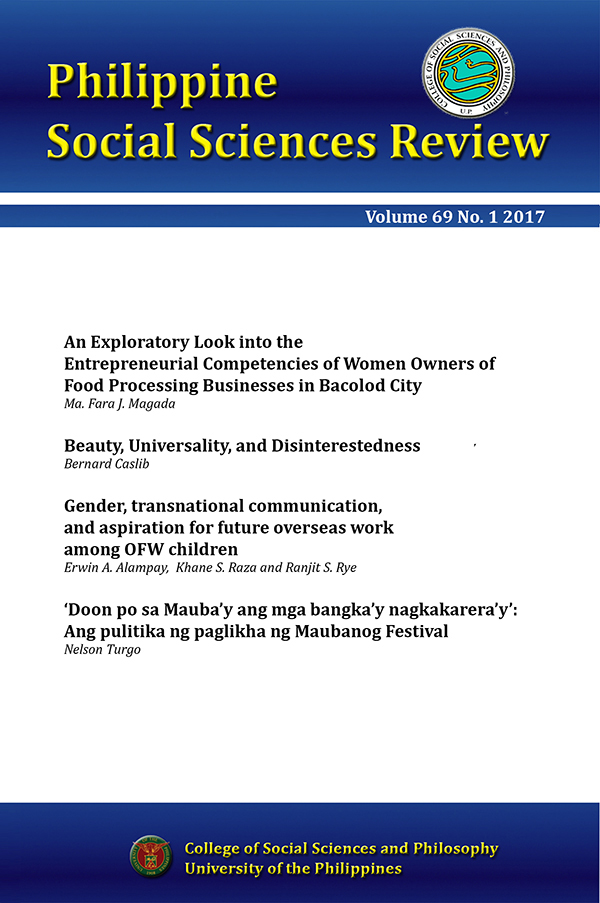Beauty, Universality, and Disinterestedness
Abstract
By analyzing key positions forwarded by the modern philosopher Immanuel Kant, this article will revisit the perennial conundrum on what beauty really amounts to and attempt a response to the constant issue hurled against the philosopher and his aesthetic theory. Kant’s solution to the competing notions of subjectivity and universality of beauty is the idea of subjective universality and the notion of contextual beauty In defense of the sophistication of Kant’s theory, I will underscore key Kantian concepts such as the reflecting power of judgment, free play, universality, and most importantly, disinterestedness. I will also take a closer look at Marcia Muelder Eaton’s disagreement with the Kantian position and respond to it by emphasizing that the notion of disinterestedness is the key to understanding Kant’s aesthetic theory.
Published
2018-02-22
How to Cite
CASLIB, JR., Bernardo N..
Beauty, Universality, and Disinterestedness.
Philippine Social Sciences Review, [S.l.], feb. 2018.
ISSN 2672-3158.
Available at: <https://journals.upd.edu.ph/index.php/pssr/article/view/5969>. Date accessed: 01 oct. 2025.
Section
Articles
Keywords
aesthetics, beauty, disinterestedness, Kant, universality


